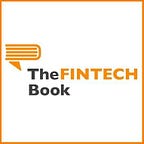FinTech impact on Society — The Rise of the “Convenience Seeker” and “Optimizer”
by: Sushankar Daspal
Twitter: @sushankar
This article explores how FinTechs are impacting society’s consumption of financial services. To understand this, one can “adapt” Maslow’s Hierarchy:
At the base, there is the need to keep money safe. Replacing traditional FIs, we have multiple FinTech like CoinBase who support customers disenchanted with the current financial infrastructure and want to keep their money safe in crypto-currencies.
What if the customer has an emergency? Can they get cash in a short time (Wonga)? Can peers fund via Prosper?
Now that money is safe, and available in an emergency, how do FinTech’s help the customer run their households? Prepaid based players like GoBank offer bank account replacement services for those who find traditional financial services inappropriate. Others, send money cheaply (Paypal) and across borders (TransferWise).
What about businesses? Some FinTechs like C2FO have focused on the lifeblood of small business — cash flow. Others focus on discounting invoices (MarketInvoice) or providing LOC based on sales data (Kabbage).
For SMEs, there are FinTechs that have focused on merchant services including POS replacement (Square) and business payments (Dwolla) while ZenPayroll has focused on delivering small business payroll.
Next, building savings.
A number of digital focused FinTechs & neo-banks like Moven help customers save money by spending effectively. For businesses, operators like Bellin help in treasury management.
Time to build assets: LearnVest guides consumers. WealthFront and SigFig will provide investment advice and manage the portfolio on behalf of the customer.
Short of capital? AngelList will help entrepreneurs obtain additional capital.
Finally, a whitespace: bequeathing wealth via estate planning services.
Fundamentally — does this unbundling create different types of consumers? A “Convenience Seeker” who leans towards traditional FSI / aggregators or an “Optimizer” who prioritizes price, speed and efficiency from a financial marketplace?
What happens to existing FSI protecting their income streams and how do they handle this societal change? Both require exploration.
Editors Notes: This entry has been submitted to the FINTECH Book, the world’s 1st globally crowd-sourced book on FINTECH. Readers that enjoyed this initial abstract are invited to share and like it so that it may be featured in a longer version.
The FINTECH Book is due to be released in April 2016 and is available for Pre-Order on Amazon.
